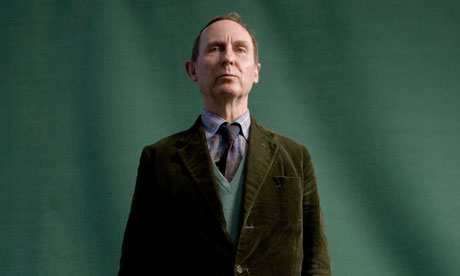
AN Wilson – biographer, historian, novelist, columnist, provocateur – is the author of more than 40 books, including, most recently, Hitler: A Short Biography. His 1998 biography of Tolstoy, which won the Whitbread prize, is now being reissued.
You wrote recently that you used to regard Tolstoy as a mystery but he now makes sense. What did you mean?
I was perhaps a little bit too inclined to think of a great conversion in the middle of his life. But when you go back and read the stuff he wrote as a soldier, and the war passages in War and Peace, it's clear he's moving towards the position of pacifism and hatred of war that dominated the second half of his life. Similarly, in War and Peace, the emphasis on peasant wisdom and the vacuity of the upper classes in Russia, it's all there.
How would you sum up his writing?
The word that leads you in is realism. When I was writing this book, Anthony Powell said to me: "Why do you want to waste your time writing about him, his books are just cinema?" I know what he means, particularly if you turn to Dostoevsky, and there's all that agitation and innerness, as if you're inside people's heads. Whereas with Tolstoy it's as if you're in the room. In many ways, he's an extraordinarily detached writer. As I've got older, I've become keener on this.
Which novelists would you place alongside Tolstoy?
He really wrote in the tradition of history writing, which confuses people. He was writing between history and art, and to that extent the only writer who is remotely like him is Walter Scott. And Balzac to a certain extent.
And today's historical novelists?
Everyone writes in Tolstoy's shadow, whether one feels oneself to be Tolstoyan or not. His influence on the dissident writers of the Soviet Uniton was enormous. Figures like Grossman or Solzhenitsyn, although their language is less elevated, were dominated by a Tolstoyan desire to use fiction to tell the truth of history.
You seem to be publishing at a furious rate – a Dante biography last year, Hitler last month and a novel later this year.
A historical novel, in fact…
How do you manage it?
If you imagine writing 1,000 words a day, which most journalists do, that would be a very long book a year. I don't manage nearly that… but I have published slightly too much recently.
Richard Evans's very critical review of your Hitler book led to a heated exchange of letters. Do you enjoy spats?
No. I thought that Evans's review was just incredibly rude. We've all been rude in our time and you have to put up with that sort of thing. He did point out one or two howlers but the rest was rather absurd of him. Dons sometimes do that to generalists.
Do you think facts are overrated?
I think they're sacred and it's quite right to point out mistakes.
Where do you work?
I've never had a study in my life. I'm like Jane Austen – I work on the corner of the dining table.
Do you have a Kindle?
I do, but funnily enough it's very difficult to get any books on it you actually want. The first thing I thought I'd put on it was Froude's Life of Carlyle, which is one of my favourite biographies, but it's quite impossible. Then you try to download the Pléiade Proust rather than some crap Proust and you can't. Then I downloaded the complete works of Yeats, and the poems give out halfway through. So I think it's of very limited use. It's fine for aeroplanes and trains but it won't replace the dear old book.

